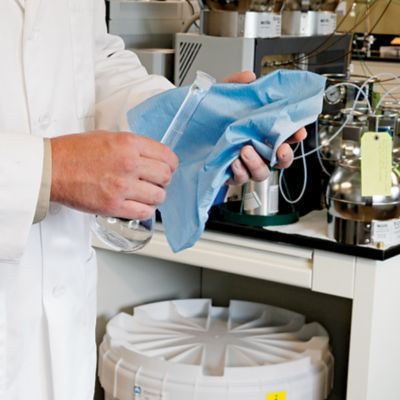Managing used wipes and rags from a safety standpoint Many times, used disposable wipes and rags can contain hazardous substances that may pose saf

Many times, used disposable wipes and rags can contain hazardous substances that may pose safety hazards to employees. But the good news is, it’s not difficult to limit employee exposure to hazardous residue on spent disposable wipes and rags. The following tips can help:
Use only what you need
Use the least amount of chemical needed to get the job done. Using excessive amounts of chemicals with disposable wipes and rags is not only wasteful, but also creates unnecessary exposure to chemicals. Educate employees about using the proper amount of chemical for each job.
Don’t mix wastes
If your facility uses different types of solvents and chemicals with disposable wipes and rags, train employees to segregate waste streams. Mixing incompatible wastes can pose serious safety threats. In addition, you may be creating unnecessary hazardous waste. If a container of non-hazardous disposable wipes and rags is contaminated with a wipe or rag containing hazardous waste, the entire container becomes hazardous waste. To avoid unnecessary disposal costs, make sure to segregate your spent disposable wipes and rags.
Look into alternatives
A waste is hazardous if it exhibits characteristics of ignitability, corrosivity, reactivity, or toxicity. Hazardous waste characteristics must be determined by testing the waste or a sample of the waste, or applying knowledge of the waste and the process to produce the waste.
If your used disposable wipes and rags contain solvents or chemicals and they’re considered hazardous waste, consider switching to a non-hazardous alternative solvent or chemical. Not only will this help keep your employees safer, but it will also help reduce your hazardous waste disposal costs!
Find out More
New Pig provide a comprehensive range of solutions for a clean and safe workplace from our online shop www.newpig.co.uk. Or why not give us a call on 0800 919 900.






COMMENTS